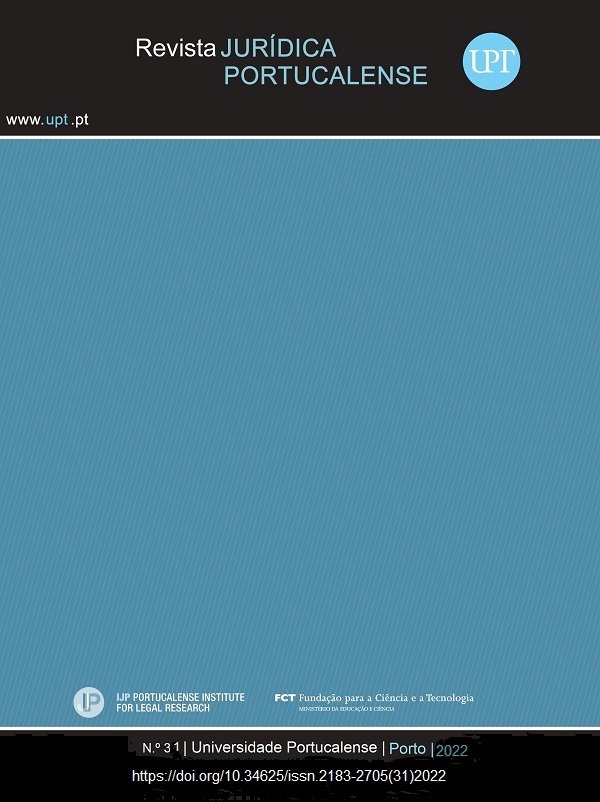Telework: a comparative analysis of the Portuguese and Spanish legal-labour regime
Keywords:
Telework; European framework agreement on telework; Legal framework for telework in Portugal; Legal framework for telework in Spain.Abstract
The main objective is to analyse and compare the current Portuguese legislation on the telework regime, contained in Law 83/2021 of 6 December, and the current Spanish legislation, contained in Law 10/2021, of 9 July.
These legislations resulted from the COVID-19 pandemic, the subsequent economic crisis, and the need to use telework to contain contamination.
Both legal systems benefit from the same EU Law, and both got inspiration from the 2002 European Framework Agreement on Telework.
However, Portuguese and Spanish laws chose different strategies in approaching the telework regime, which had repercussions on their legal drafting.
Thus, in the Spanish case, collective bargaining was prioritised, while in the Portuguese case, the legislator himself delimited the worker's rights as much as possible. Each of these approaches has positive aspects, but they also present points that could be improved and which we will analyse.
References
CAÑADAS SÁNCHEZ, Francisco Javier. Teletrabajo: Revisión teórica y análisis jurídico-laboral. Miguel Ángel Almendros González (dir.), Tese de Doutoramento, Universidade de Granada, Espanha, 2017. Disponível em: http://hdl.handle.net/10481/48771
CASTELO BRANCO, Inês. O regime do teletrabalho. As novas regras e algumas interrogações [em linha]. RBMS. 16 dezembro de 2021. [consultado 29-01-2022]. Disponível em: https://www.rbms.pt/noticias/teletrabalho-o-que-muda-a-partir-do-dia-1-de-janeiro-de-2022/
CATAÑO RAMÍREZ, Sara Liliana e GÓMEZ RÚA, Natalia Eugenia. El concepto de teletrabajo: aspectos para la seguridad y salud en el empleo. Revista CES Salud Pública, janeiro - junho 2014, vol. 5 nº.1
CHUG, Abhinav. What is “The Great Resignation”? An expert explains. World Economic Forum [em linha]. 29 novembro de 2021 [consultado 29-01-2022]. Disponível em: https://www.weforum.org/agenda/2021/11/what-is-the-great-resignation-and-what-can-we-learn-from-it/
FANDOS, José Luis et al. El teletrabajo. Acciones e investigaciones sociales, n.º 8, 1998. ISSN 1132-192X.
FERNANDES, Tiago Oliveira. O Teletrabalho e a Lei n.º 83/2021, de 6 de Dezembro (breves considerações) [em linha]. 7 dezembro de 2021. [consultado 29-01-2022]. Disponível em: https://www.tofadvogados.com/post/o-teletrabalho-e-a-lei-n-%C2%BA-83-2021-de-6-de-dezembro-breves-considera%C3%A7%C3%B5es
FUNDACIÓN MÁSFAMILIA. El libro blanco del teletrabajo en España [em linha]. 2012. Disponível em: https://ajuntament.barcelona.cat/tempsicures/sites/default/files/libroblancoteletrabajoespana.pdf
GUNASEKARA, Vindya e NISHANTHI, H.M. Telecommuting a challenge or a blessing for people management? [em linha]. 2021, [consultado 29-01-2022]. Disponível em: https://www.researchgate.net/publication/351249363_TELECOMMUTING_A_CHALLENGE_OR_A_BLESSING_FOR_PEOPLE_MANAGEMENT
HEREDIA RUIZ, Ignasi Beltran de. El teletrabajo en sector privado – ámbito de aplicación (Art 1 Ley 10/2021) [em linha]. 22 julho 2021. [consultado 29-01-2022]. Disponível em: https://ignasibeltran.com/teletrabajo/#281
MINISTÉRIO DO TRABALHO, SOLIDARIEDADE E SEGURANÇA SOCIAL. Livro verde sobre o futuro do trabalho [em linha]. Junho de 2021 [consulta a 29-02-2022]. Disponível em: https://www.portugal.gov.pt/pt/gc22/comunicacao/documento?i=livro-verde-sobre-o-futuro-do-trabalho
MOREIRA, Teresa. Direito do Trabalho na Era Digital. Coimbra: Almedina, 2021. ISBN 978-972-40—9775-6.
OIT. Teletrabalho durante e após a pandemia da COVID-19 – Guia prático, Genebra: Bureau Internacional do Trabalho, julho de 2020. ISBN 978-972-704-443-6.
POQUET CATALA, Raquel. Reflexión en torno al encuadramiento jurídico de las personas repartidoras de plataformas digitales. Lan Harremanak – Revista de Relaciones Laborales, Edición In Press argitalpena, 2021, nº 45. ISSN: 1575-7048 / e-ISSN: 2444-5819.
REDINHA, Maria Regina Gomes. Teletrabalho - Anotação aos artigos 233º a 243º do Código do Trabalho de 2003 [em linha], Faculdade de Direito da Universidade do Porto, [consulta a 29-01-2022]. Disponível em: http://www.cije.up.pt/download-file/216
SALA FRANCO, Tomás (coord.). El teletrabajo. España: Tirant lo Blanch. ISBN 978-84-1378-128-0
SANTOS GIL, Susana Isabel Pinto Ferreira dos. As perspetivas civis do contrato de trabalho – o teletrabalho subordinado: seu estudo nos ordenamentos jurídicos português e espanhol. Domingo Bello Janeiro (dir.) Tese de Doutoramento, Universidade da Corunha, Espanha, 2015. Disponível em: https://ruc.udc.es/dspace/handle/2183/15003
SCHIFF, Frank. Working from home can save gasoline [em linha]. Washington Post. 2 setembro de 1979. [consultado 29-01-2022]. Disponível em: https://www.washingtonpost.com/archive/opinions/1979/09/02/working-at-home-can-save-gasoline/ffa475c7-d1a8-476e-8411-8cb53f1f3470/
TEIXEIRA, Adriana Paula Domingues. O teletrabalho como nova forma de organização do trabalho: de um fato atípico ao novo normal. João Carlos Conceição Leal Amado (dir.) Tese de mestrado. Faculdade de Direito da Universidade de Coimbra, 2021. Disponível em: http://hdl.handle.net/10316/95856
TODOLÍ SIGNES, Adrían. La frontera entre el trabajo autónomo y subordinado. In: SALA FRANCO, Tomás. El teletrabajo. España: Tirant lo Blanch., 2020. ISBN 978-84-1378-128-0.
WELZ, Christian e WOLF, Felix. Telework in the European Union [em linha]. European Foundation for the Improvement of Living and Working Conditions. Ireland, 2010. [consultado 29-01-2022]. Disponível em: https://www.eurofound.europa.eu/publications/report/2010/telework-in-the-european-union
Downloads
Published
How to Cite
Issue
Section
License
Authors who published in the journal agree to the following terms:
- The Authors grant the Journal the right of first publication, and other non-exclusive publishing rights, licensed under the Creative Commons Attribution License which allows the sharing of work with recognition of its initial publication in this journal.
- Authors are able to take on additional contracts separately, non-exclusive distribution of the version of the paper published in this journal (ex .: publish in an institutional repository or as a chapter in a book), with an acknowledgement of its initial publication in this journal.
- Authors are permitted and encouraged to post and distribute their work online (eg .: in institutional repositories or on their website) at any point before or during the submission process, as it can lead to productive exchanges, as well as increase the impact and the citation of published work (See The Effect of Open Access).
RJP does not apply submission, publication or any other fees of any nature. Its articles are open access, with the goal of disseminating scientific knowledge and the debate of legal topics in the area of Legal Sciences.






